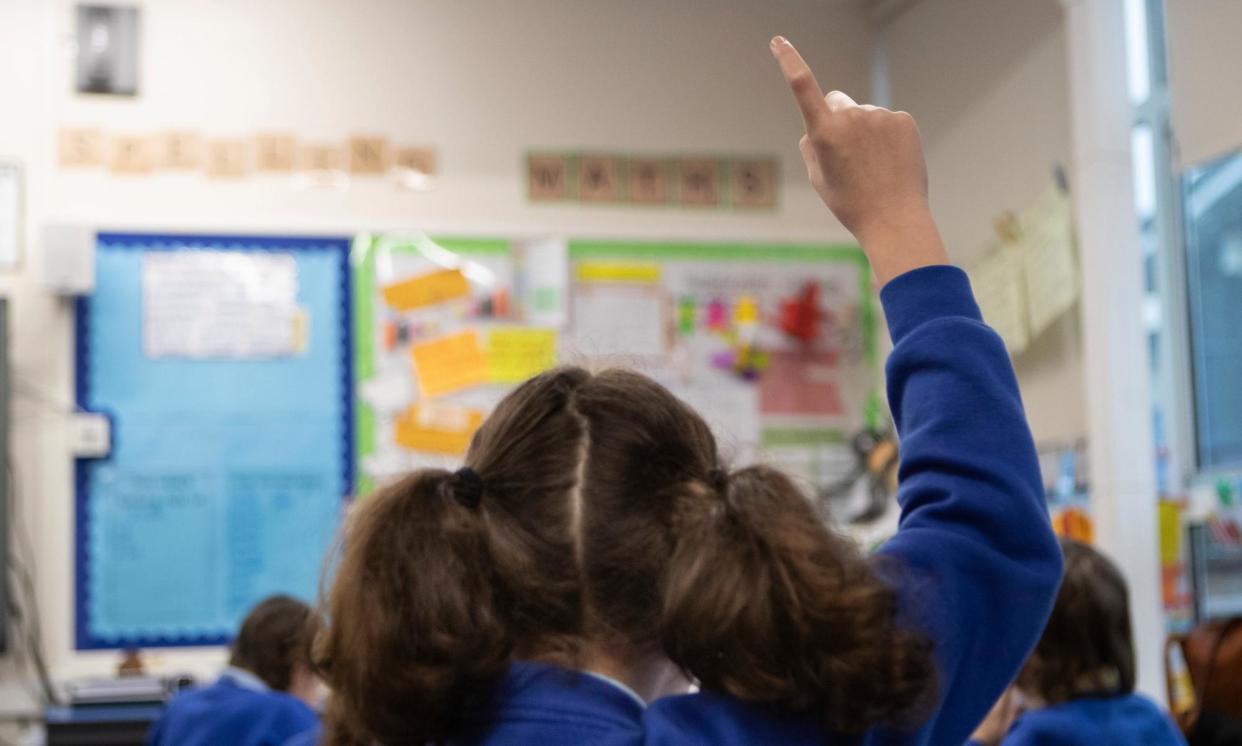Sex education in English schools set to be banned before children are nine

Sex education in England’s primary schools is to be limited to those aged nine and over, with “explicit” discussions on topics such as contraception to be delayed until the age of 13, according to new guidance to be proposed by the government.
The revised guidance on relationships, sex and health education is expected to be published this week by the education secretary, Gillian Keegan, and is likely to contain further restrictions on teaching about gender and identity, with teachers told to instead explain “biological” facts, according to reports.
Keegan will announce a consultation that proposes schools be barred from teaching sex education of any type before year 5, when children are nine years old.
A Whitehall source said: “Most schools are doing a great job [teaching sex and relationship education], however, there have been many concerning reports, and these limits are based on advice from an expert panel.”
Schools would be given the flexibility to discuss topics outside the detailed age groups in certain circumstances, such as if a younger child shared an inappropriate image with a class.
“It’s never an easy balance to make to ensure children are both prepared but also able to remain children but this guidance achieves that,” the source said.
The guidance will also require schools to show parents all classroom material to be used – something long demanded by a group of Conservative MPs.
The Daily Telegraph reported that the details were “still being finalised”, with the plans being circulated to cabinet ministers, and suggested there could still be changes before they are published.
The Telegraph also reported that the guidance will make clear that “gender ideology” involving discussions regarding changes of gender is a “contested subject”, and that teachers must say that there are two biological sexes.
However, one adviser likened it to “any other contested view: schools should ensure they are clear that it is a contested view and fairly present all sides” – in the same way that political discussions are handled.
The revised guidelines are said to be far more detailed on what schools can teach in sex education up to the age of 13, when pupils are in year 9.
Before that, the content will be limited to “basic facts” of conception and birth.
Primary schools will be expected to focus on the importance of families, friendships and ensuring that relationships are “respectful”, including discussion of damaging stereotypes and roles, as well as warning of the dangers of social media and online relationships.
Related: Too much too young: I talked to 10,000 children about pornography. Here are 10 things I learned
Discussions of sexual acts will be kept until year 9, the third year of secondary school in England, which may also cover subjects such as contraception, abortion and sexually transmitted diseases.
Topics such as sexual violence and domestic or relationship violence are not to be raised until year 9.
Pupils in year 7 will be able to be taught about the dangers of sending or receiving naked images or pornography, as well as about sexual harassment, stalking and grooming.
Rishi Sunak first agreed to bring forward the review of England’s statutory guidance on relationships, sex and health education (RSHE) in March 2023, after pressure from Conservative MPs who claimed that inappropriate subjects and graphic material were being taught.
The claims were rejected by teaching unions, with one describing the review as “politically motivated”.

 Yahoo News
Yahoo News 
